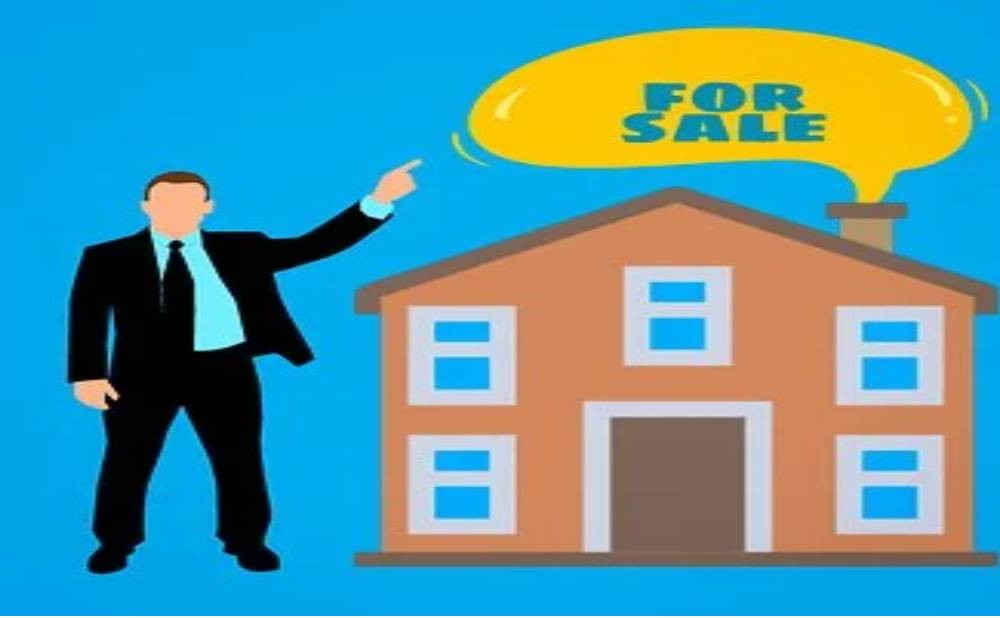The first thing selling and buying a house has in common is getting the best price possible. That’s why sellers want to know how to get the most money for their house. So, there’s no surprise that so much time is spent tracking the real estate market, analyzing housing data and trends, and consulting with experts to learn home selling tips and strategies.

It’s no secret that the real estate market has been on a roller coaster ride over the last few years. Home prices have risen and fallen, and now they’re rising again in many areas of the country. While it’s impossible to predict the future, if you’re considering selling your house, it’s important to be prepared to get the best price possible. Here are some home selling tips to help you prepare your house for sale and get the most money possible:
1. Work With a Real Estate Agent
The housing market has changed a lot in recent years, and it can be challenging to keep up with the latest trends. Working with an experienced real estate agent who knows the ins and outs of the market can help you price your home correctly from the start so you don’t miss out on any potential buyers.

Some real estate agents also buy houses themselves, so if you’re in a hurry to sell, they may be able to help you find a buyer quickly. Just search for an agent running a “we buy houses” promotion in Florida so you can learn about the options in your area. Your agent can also help you market your home effectively and negotiate with buyers to get the best possible price. They can provide insight into what buyers want in a home and what you can do to make your house more appealing.
2. Clean and Stage Your Home
When selling your house, first impressions are everything. You want potential buyers to come in and see a clean, well-maintained home that looks spacious and inviting. Start by decluttering each room and removing personal items like family photos or memorabilia. Then, give the entire house a good deep cleaning. Be sure to pay special attention to the kitchen and bathrooms, as these are typically the most important rooms to buyers.
If you have any old or outdated furniture or fixtures, consider replacing them with more modern pieces. You may also want to rent some furniture or staging items to make your home look its best. The goal is to show buyers that your house is move-in ready so they can envision themselves living there.
3. Make Necessary Repairs and Upgrades
Before putting your house on the market, look closely at each room and make any necessary repairs. This could include fixing cracks in the walls, repairing damaged flooring, or fixing leaky faucets. You may also want to consider making some cosmetic upgrades like painting the walls, updating light fixtures, or installing new countertops.
Even minor repairs and upgrades can make a big difference in how your house looks to potential buyers. Plus, it can help you get a higher price for your home. Just be sure not to overspend on renovations, as you may not recoup your investment when you sell.
4. Price Your Home Competitively
Once your house is ready to show, it’s time to come up with a listing price. This can be tricky, as you want to ensure you price your home competitively without leaving money on the table. Look at recent sales of similar homes in your area to get an idea of what your house is worth. You can also ask your real estate agent for a comparative market analysis (CMA). This report will provide detailed information on your area’s recent home sales and prices.
Once you have a general idea of what your house is worth, you can start to play around with different pricing scenarios. Sometimes, it may be best to slightly underprice your home to generate more interest and multiple offers. However, if you’re in no rush to sell, you may want to price your home closer to its full value.
5. Market Your Home Effectively
Once you’ve priced your house competitively, it’s time to start marketing it to potential buyers. In addition to listing your home on the MLS, you can use several other effective marketing strategies. For instance, you can hold an open house or host a broker’s open house for real estate agents. You can also promote your listing online and on social media using eye-catching photos and compelling descriptions. The key is to get as much exposure for your listing as possible, so more buyers are aware of it.
6. Carefully Consider Offers and be Ready to Negotiate
Once you start receiving offers on your home, you must consider each one carefully. In addition to the purchase price, pay close attention to the buyer’s financing contingency and any other special conditions they’ve included in the offer. If you’re happy with the offer, you can move forward with negotiations. If not, you may want to counter the offer or continue marketing your home until you receive a better one. Remember, selling your home is a negotiation, so be prepared to haggle back and forth before reaching an agreement. The goal is to get your home’s best price and terms.
7. Close the Deal
Once you’ve agreed with the buyer, it’s time to finalize the deal. This typically includes signing a purchase and sale agreement, getting a home inspection, and arranging for a closing date. Be sure to consult with your real estate agent throughout the process, so you know what steps need to be taken and when they need to be taken. They’ll also be able to help you navigate any potential roadblocks that may come up during the closing process.
In most cases, the buyer will need a mortgage loan to buy your house. This means they’ll have to submit a loan application and provide documents like pay stubs, bank statements, and tax returns. Once the buyer’s loan is approved, it’s time for the final steps of the closing process. This usually includes paying closing costs, signing all relevant documents, and possessing the property.
Selling your home can be a lengthy and complicated process. It requires careful planning, preparation, and marketing. However, if you follow these tips, you can help ensure a successful sale. Remember that selling your home is a negotiation. Be prepared to haggle back and forth with buyers to get the best possible price for your home.
